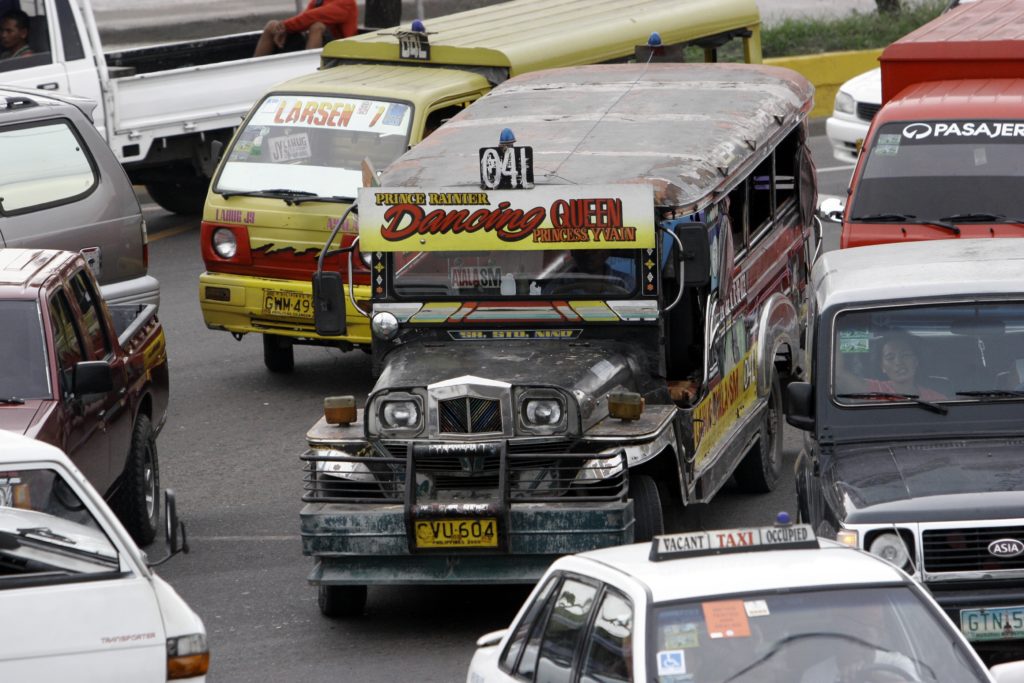Traditional jeepneys no longer ‘kings of the road’ in Cebu City

With fewer units plying the city streets since the pandemic, traditional jeepneys are no longer considered the “kings” of Cebu City’s roads. | CDN file
CEBU CITY, Philippines — The traditional jeepneys are no longer the “kings of the road” in Cebu City as the Jeepney Task Force (JTF) notes a significant drop of jeepneys plying the streets as compared to the pre-pandemic days.
Councilor James Cuenco, who heads the task force as the chairperson for the Council’s committee on transportation, said that only 1,420 traditional jeepneys are currently plying the roads in Cebu City.
This is a far cry from the close to 5,000 traditional jeepneys plying over 20 routes here before the COVID-19 pandemic hit.
In fact, the JTF expected so much more jeepneys to apply for the Balik Pasada Program but the underwhelming number of applicants indicates that jeepney operators are either moving on towards modern jeepneys or other forms of transportation.
The JTF records at least 2,000 traditional jeepneys whose operators applied for the Balik Pasada Program, but the program has a 20 to 30 percent fail rate which means that a portion of the applicants was declined.
The Land Transportation Office in Central Visayas (LTO-7) did not approve around 500 units because of their failure to meet the roadworthiness standards set by the agency.
“Katong mga karaan di naman modagan. There could have been more if only their units are road worthy. Daghan ang nahagbong kay karaan na kaayo nya dugay na wala nagdagan,” said Cuenco.
The councilor said that because it is very expensive to fix or condition an old jeepney, operators are instead choosing to join cooperatives for them to be able to have modern jeepneys.
Yet this is an actual advantage to the jeepney modernization program of the Department of Transportation (DOTr) because the transition to modern jeepneys has been hastened by the exodus of the older units, the councilor notes.
However, Cuenco said that this is a disadvantage to the commuters because the lack of traditional jeepneys has significantly reduced the public transport supply in the city amid rising demands, something that the modern jeepneys cannot yet meet.
The current number of modern jeepneys plying the streets is around 1,500 including the ones with inter-city routes. The number of modern jeepneys is now higher than traditional jeepneys for Cebu City.
Still, the total number of traditional and modern jeepneys is still around 3,000, which has a deficit of at least 2,000 compared to the pre-pandemic days.
The councilor said the buses cannot make up for such deficit since many bus liners have been pulling out of Cebu City to return to their original provincial or Metro Cebu routes.
The hope of the city government now is that the arrival of modern jeepneys are hastened to meet the demand for public transport and feed routes that have not yet returned since the pandemic began.
For Cuenco, the best solution would be the Bus Rapid Transit (BRT) system as it is expected to massively increase the public transport capacity of the city through dedicated lanes and bigger units for the BRT route.
This is why the councilor laments the delay of the project due to documentary reasons, something the national government has yet to solve.
“Dynamic ang situation. As more jobs are open, more industries are now operating, nagkasaka gyod ang demand. Ang makasulbad gyod ana nga makastabalize gyod anang demand is kung mokick in na ang BRT, ang mass transport nato,” said Cuenco.
As a short-term solution to the public transportation problem, Cuenco said they are awaiting the decision of the Interagency Task Force (IATF) to increase the maximum capacity of public transport to 80 percent.
This may not be the best solution, but it may at least add additional seats in public utility vehicles (PUVs) for passengers that need them, Cuenco said. /rcg
RELATED STORIES:
Cebu City to finally reopen all jeepney routes
60 modern jeepneys coming to Cebu City streets
Jeepneys can ply Cebu City streets 24/7 — Cuenco
Disclaimer: The comments uploaded on this site do not necessarily represent or reflect the views of management and owner of Cebudailynews. We reserve the right to exclude comments that we deem to be inconsistent with our editorial standards.
